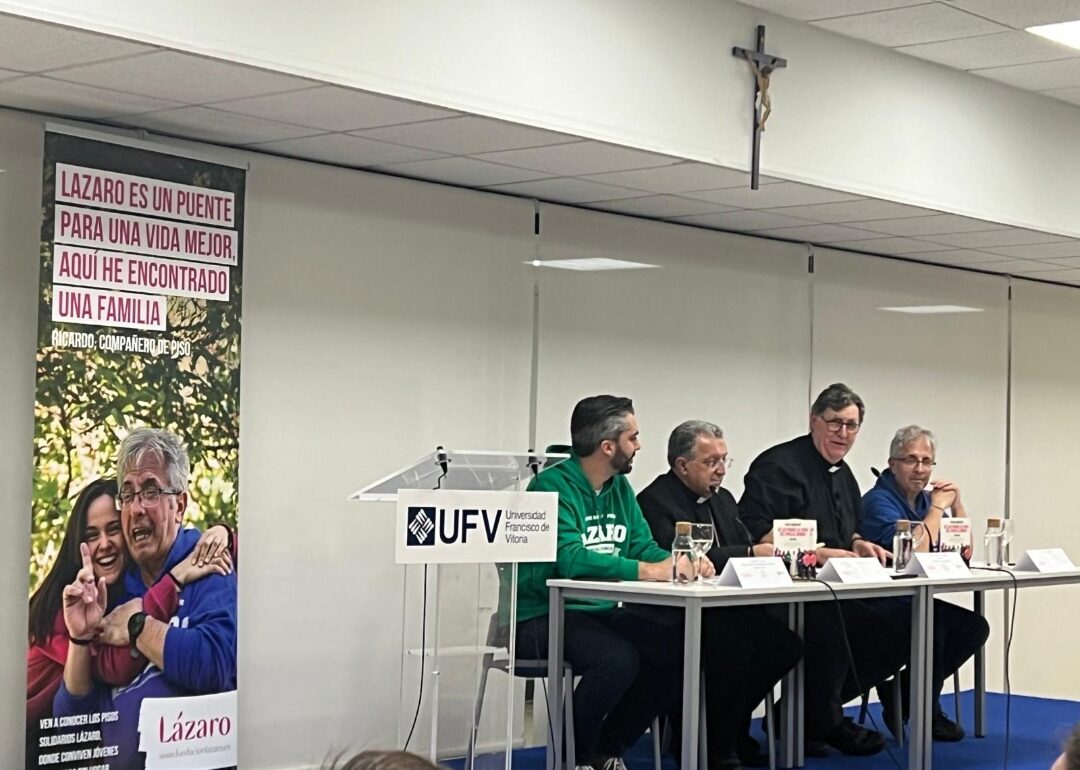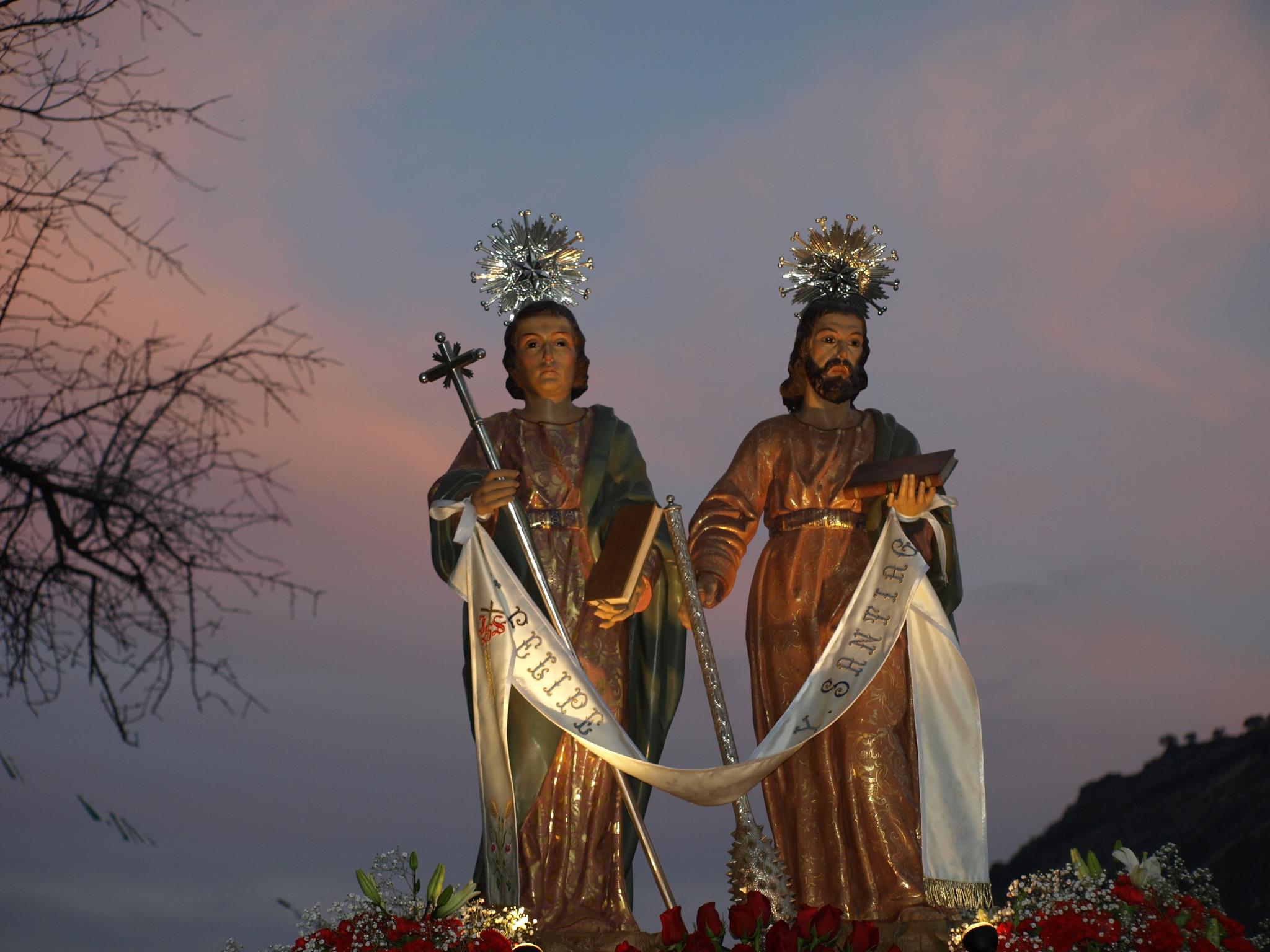Last Thursday, February 15, 2024, at 7 p.m., at the Francisco de Vitoria University, D. Ginés García Beltrán, Bishop of the Diocese of Getafe, presented the book “From the Poor to the Pope, from the Pope to the World”, which includes the extraordinary dialogue between the poor of the five continents and Pope Francis, organized and published by the Lázaro association.
The presentation, which was attended by about eighty people, was chaired by the bishop of Getafe, led by the priest Álvaro Cárdenas Delgado, founding president of Lázaro España, and followed by the interventions of Bernabé Villalba Silva, a young volunteer of the project, responsible for communication from Lázaro España and professor at the Francisco de Vitoria University, and from Ricardo Barajas, a roommate of the project in Madrid and one of the protagonists of this dialogue with the Pope.
In the interventions, Mr. Álvaro Cárdenas presented the Lázaro project, the organizer of this dialogue, as “one more proposal in our communities and in our society that takes our brothers who live on the streets out of anonymity and exclusion.” He recalled that “if people who live on the streets need a roof, they also need human relationships: welcome, listening, affection and friendship.” He explained that “Lázaro is more than a social project or beautiful shared apartments, it is more than a response to the need that people at risk of exclusion have. It also wants to be the ferment of a new culture in which young people are protagonists, committed to making possible the necessary transformation of our society.”
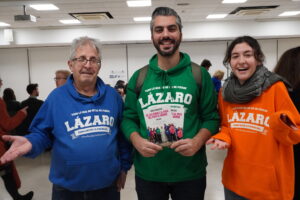
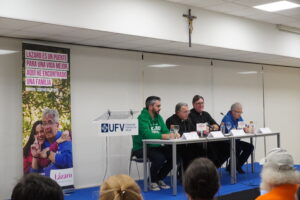
As a concrete expression of the invitations that the Pope addresses to us in this dialogue, Barnabas expressed the enormous wealth that sharing a flat in Lázaro for five years with his companions who have gone through the hard experience of living on the street or finding themselves on the verge of exclusion. He testified how “life in the small apartment community makes ordinary life extraordinary.” He commented how his roommates have accompanied him during those five years and his company has changed his life. He invited young people to come and get to know Lazarus and live this transformative experience that allows them to find Christ in others and this friendship that resurrects, as happened to him.
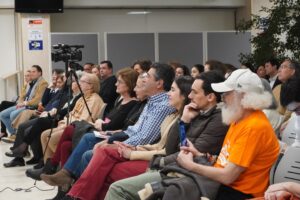
Lázaro is looking for interested young people, families and friends who want to collaborate in the project in the south of Madrid. If you are interested, please contact Mr. Álvaro Cárdenas, priest of the diocese and promoter of the project: fundacionlazaro.es; [email protected].
***
Words from the Bishop of Getafe:
The Lázaro association in Spain, through its President, Father Álvaro Cárdenas, was kind enough to ask me to preface this beautiful book, in its Spanish edition. The book is a conversation, a dialogue in the form of a colloquium between Pope Francis and the poor of the earth. A direct, sincere, close, suggestive and challenging dialogue in as many moments as the Pope likes, and that does so much good for those of us who approach him.
In this work we find Francisco “in his pure state.” He does not resist any question, he always answers with simplicity and with a language that reaches everyone and everyone can understand. As you read each page you enter into the dialogue, and so it seems as if each of the readers were present in Santa Marta – the Roman residence of the Pope – talking to him. Those of us who have had the privilege of sharing a few moments of dialogue with Francisco know well that he has a special gift for creating a climate of welcome and closeness that not only does not inhibit you, but makes you feel at home and with a friend. That is a gift that creates a relationship of cordiality and union capable of changing the heart. After speaking with the Pope you do not leave indifferent.
The first chapter of this dialogue “is not wasted” (“The Pope is an Everyman”, it is titled). He answers all the questions with a simplicity and spontaneity that is moving: what is your day like? What do you do? What do you eat? How much do you earn? What family do you have? etc. The answers not only reveal objective data about the Pope’s biography, but also the depth of his heart; for example: What do you do in situations of uncertainty?, and the answer shows your interior: “The temptation in those moments is to want to resolve the situation quickly. What I do is stop, I try to stop, because sometimes I am restless and I want to resolve the situation as soon as possible. And when I act like this it’s not always right. Then I try to stop and take time to consider the matter, consult, pray, let a few days pass and see… Look calmly today at what I have in my hands, look at it again tomorrow.”
It is also beautiful to read the words with which the Pope describes in outline his vocation, the “astonishment at someone who is waiting for them”, and the path of every vocation also with its difficulties. The Pontiff confesses that the question has also arisen in his heart on some occasions: Where is God? “That darkness did not always surround me, but it passed through me.” A very Unamunian expression, by the way.
As stated so many times in these pages, the Pope has a special sensitivity towards the poor, we are all witnesses of his expressive gestures towards those who need it most – a hug, a caress, a look, a blessing -, and his denunciation of the indifference of a rich world that excludes the poor. The Pope has recounted on several occasions the words that the Brazilian cardinal, Claudio Hummes, said to him during the conclave, and that shook him strongly; words that he took very seriously: “Don’t forget the poor.” These words have marked his pontificate in an evident and significant way. Therefore, the dialogue with the poor of the earth that these pages contain are another expression of this concern, of love for the most needy, for those who were left by the wayside of life, for those who do not count, for those discarded. It is a new opportunity that the Pope does not waste to give a voice to those who do not have one.
The Pope speaks of dignity, of shame, of exclusion, of the sin of the poor distribution of wealth, of private property and the universal use of goods, of men in the street and the importance of the family, he speaks of to welcome, to accompany, to care, explains to everyone the content and meaning of their contribution to the DSI; Furthermore, he does not have false contemplations towards the poor either: the way is to get out of there, and you can, with the help of others, but you can. Hope is a gift, a precious gift that must be taken care of every day.
In all the answers, I think of those in which he refers to a problem so present and pressing today, such as mental health, the Pope always calls for meaning. The meaning that is in God, that is why man’s path to meaning is holiness. “It is difficult to let yourself be loved by love. It’s difficult, but it’s so beautiful!
On many occasions the Pope’s interviews are surrounded by controversy, however, the Pope wants to take that risk, and grants various interviews to media outlets with very different origins and ideologies. I am sure that he knows the risk of an interview, but his desire to approach and dialogue with today’s man is stronger than what his opinions can generate. The Pope often repeats, and I have heard it personally, that the language of closeness is a universal language that everyone understands above ideas, feelings, or beliefs. Therefore, in Francisco’s interviews, if the answers are important, the non-verbal language is no less important, his expression, his tone of voice, his gaze that welcomes the questioner, even if what he asks is compromising. You may agree or not, but he has listened to you and welcomed you. In a word, he has made you feel important.
I have felt moved reading these pages to see the delicacy of Francis in answering the questions of the poor, simple and profound questions, no matter if they are very personal or about issues related to the Church and the world. He always answers and answers everyone. He talks about what he likes, and also about his defects, even about his confession, he talks about faith and suffering. The Pope is overwhelmed by humanity, it is what truly moves him, that humanity that has its source and its destiny in God, in God made man, in Christ, our brother.
The dialogue contained in these pages is a true conversation with the Pope. In the end you can say that you know him a little more, that he is more part of you, of your family. Let me cite as an example Francis’ response to the question: What is his greatest wish as Pope? He answers simply: “Be a good priest. That’s what comes to me. I have never asked myself this question, but my answer comes from my heart.”
I thank the Lázaro association for this initiative of interview-meeting with the Holy Father, and for the gift it gives us with its publication, now also for Spanish-language readers. The gratitude to the “Lázaro” family extends to the work they do in favor of the most vulnerable in society. It is an association created in France in 2011 to offer a roof to street people and give a home to those experiencing community uprooting that has excluded them from social relations. They are homes shared with young students or professionals who rebuild what was destroyed, making homes places to share and create friendship. Knowing this reality is an extraordinary experience that I recommend to everyone.
The Pope, in the audience granted to the Lazarus Association on August 28, 2021, insists: “The worst thing that could happen to Lazarus is to forget that he is small, because if he becomes big in the heart, through power, Because of pride, because of complacency, the tree will not grow and the mass will not rise. “Your wealth is not in the bank, your wealth is being small.”
I am sure that reading these pages will be a moment of joy and rest for those who approach them, not only will they better know the man that Providence has placed at the head of the Church at this moment in history, but They will come out a little better, that’s what it’s all about.
At the end of the interview someone questions the Pope: “And you, Pope Francis, if you had any question to ask people on the street, what would you like to ask them? The answer is: You, what do you expect from the Church? “What do you think the Church could do to be even more attentive to the poorest. You who have experienced humiliation and abandonment, what should the Church and society know about this experience?
I invite you to read this book that transmits life, authenticity, and generosity, while I thank everyone who has made it possible for it to reach us.
I hope, as the Pope himself tells us, that we are all capable of opening doors, never closing them, opening our hearts to welcome and embrace everyone, especially the poorest. And let us not forget, the door, the Pope insists, is God

